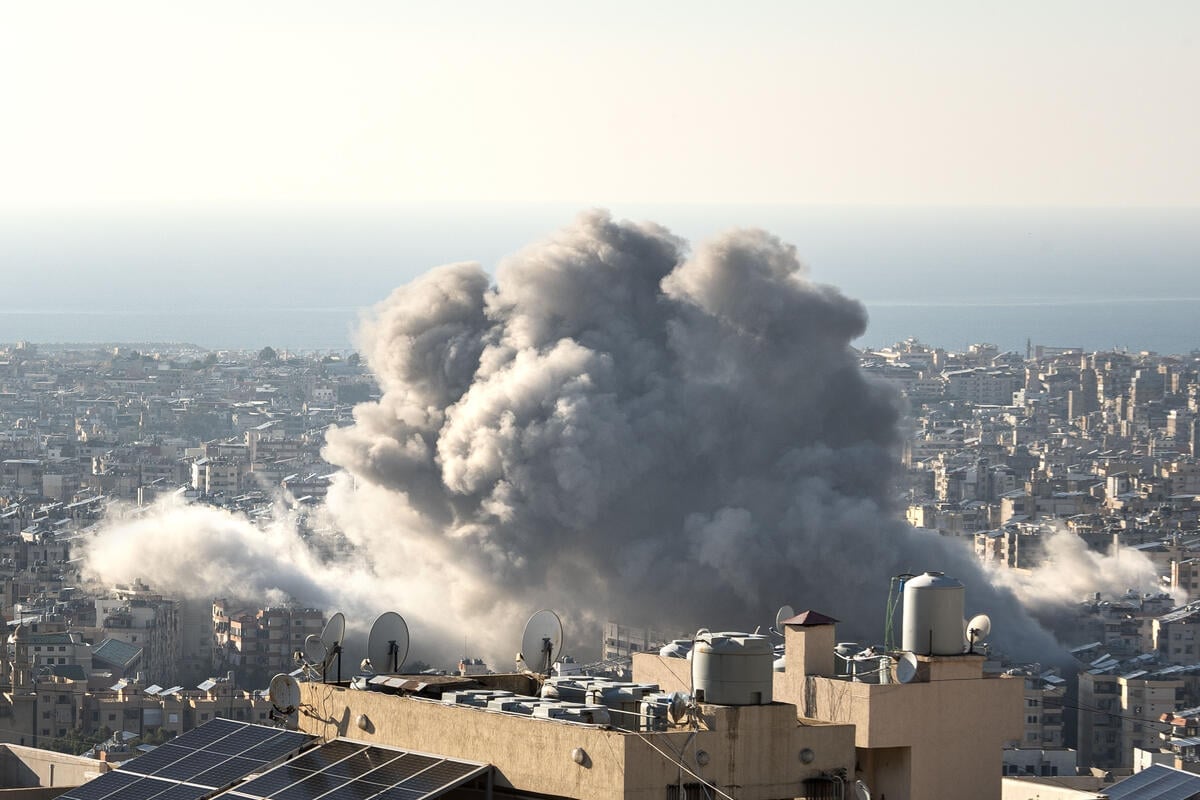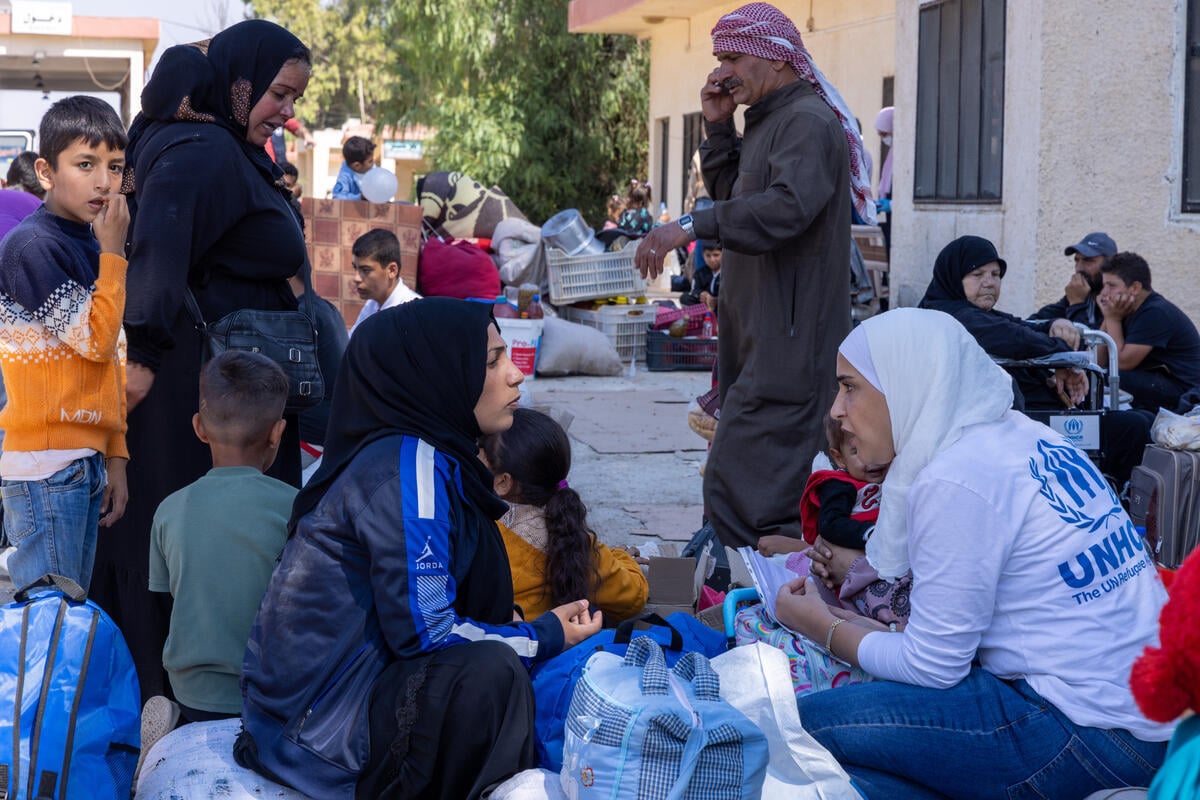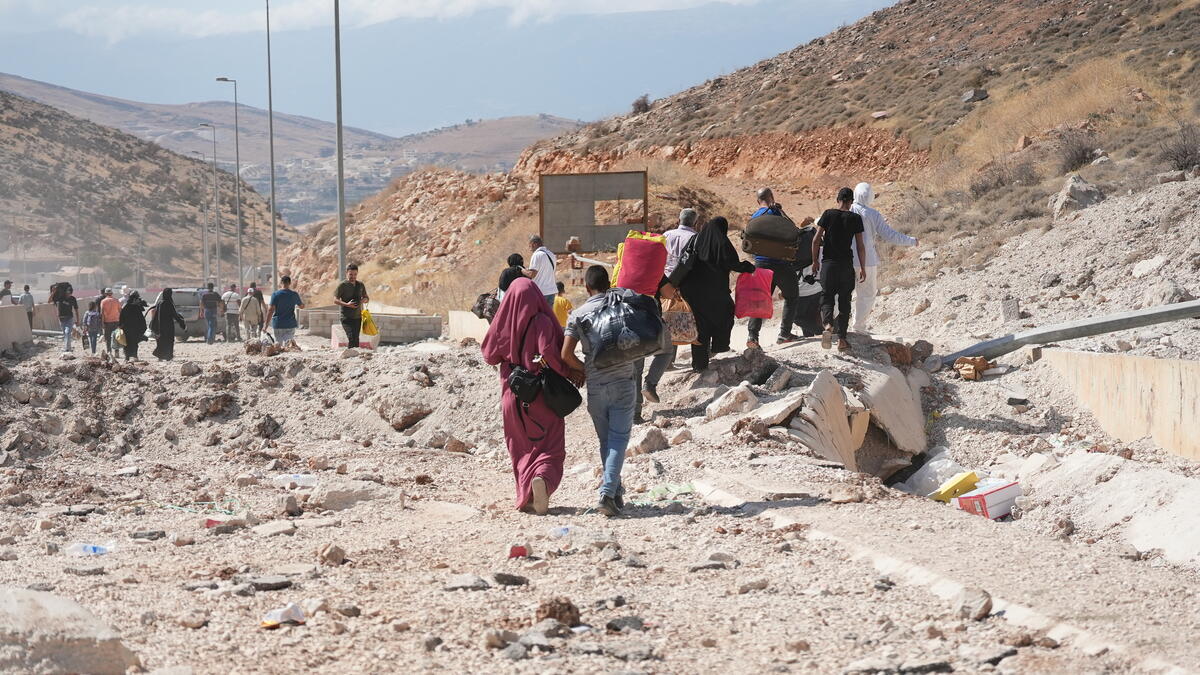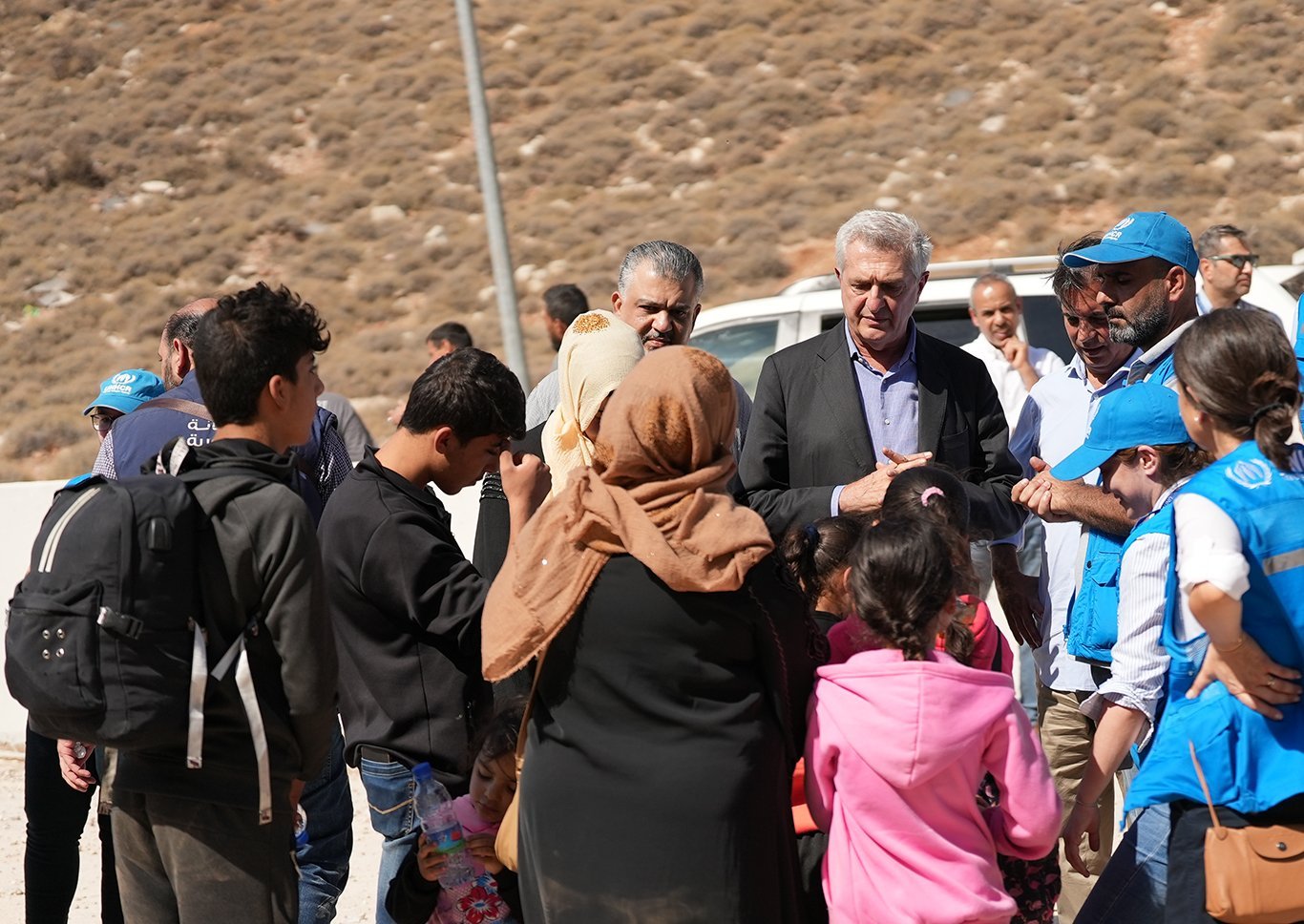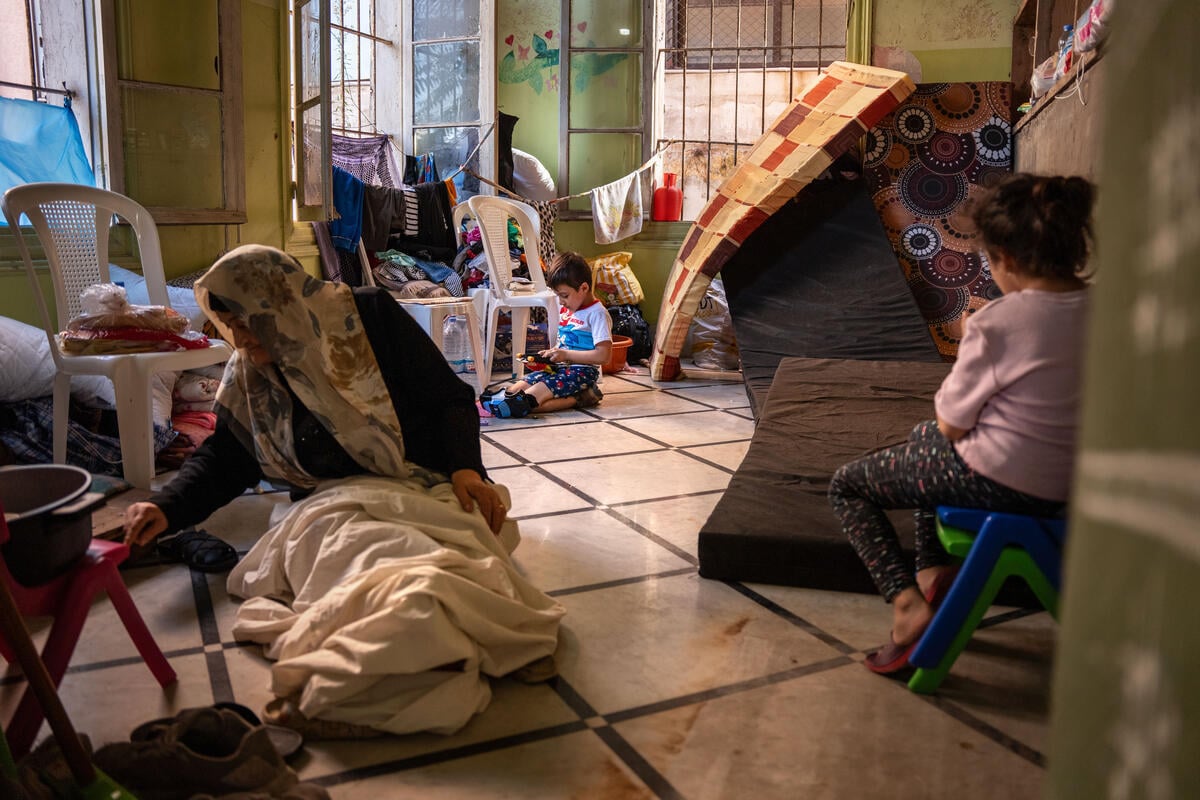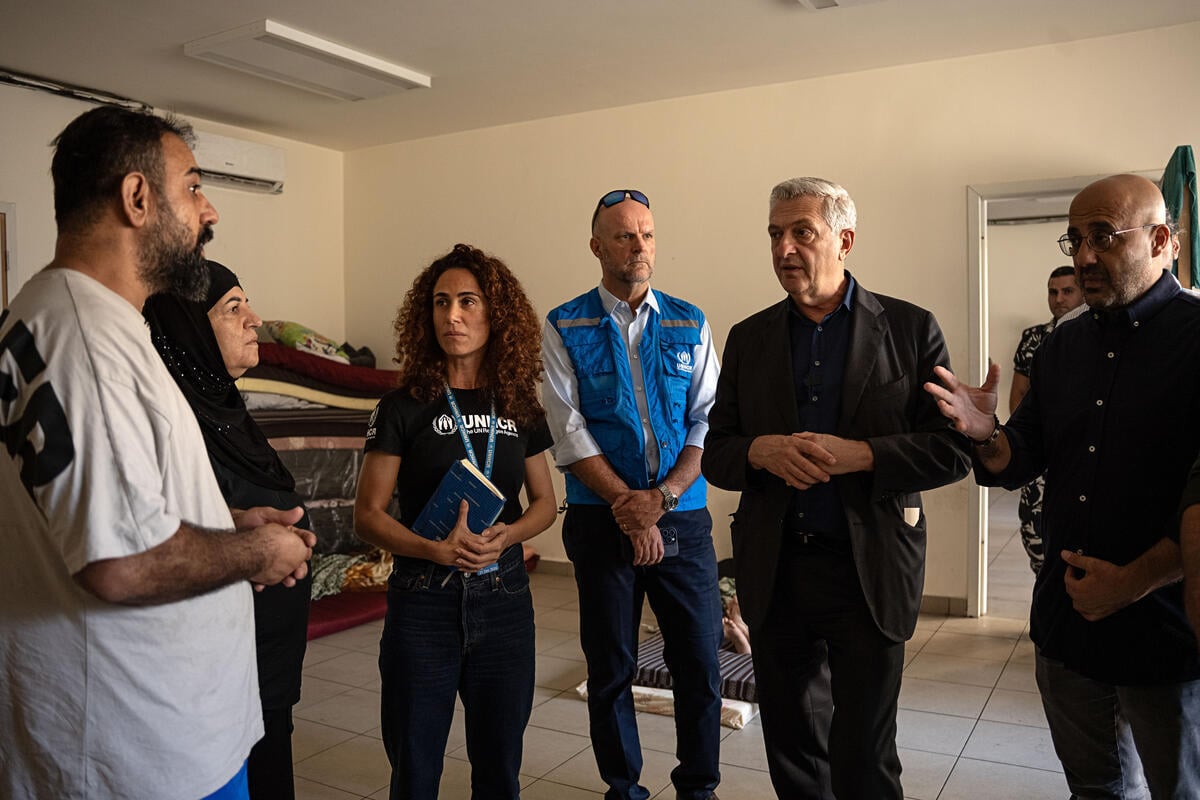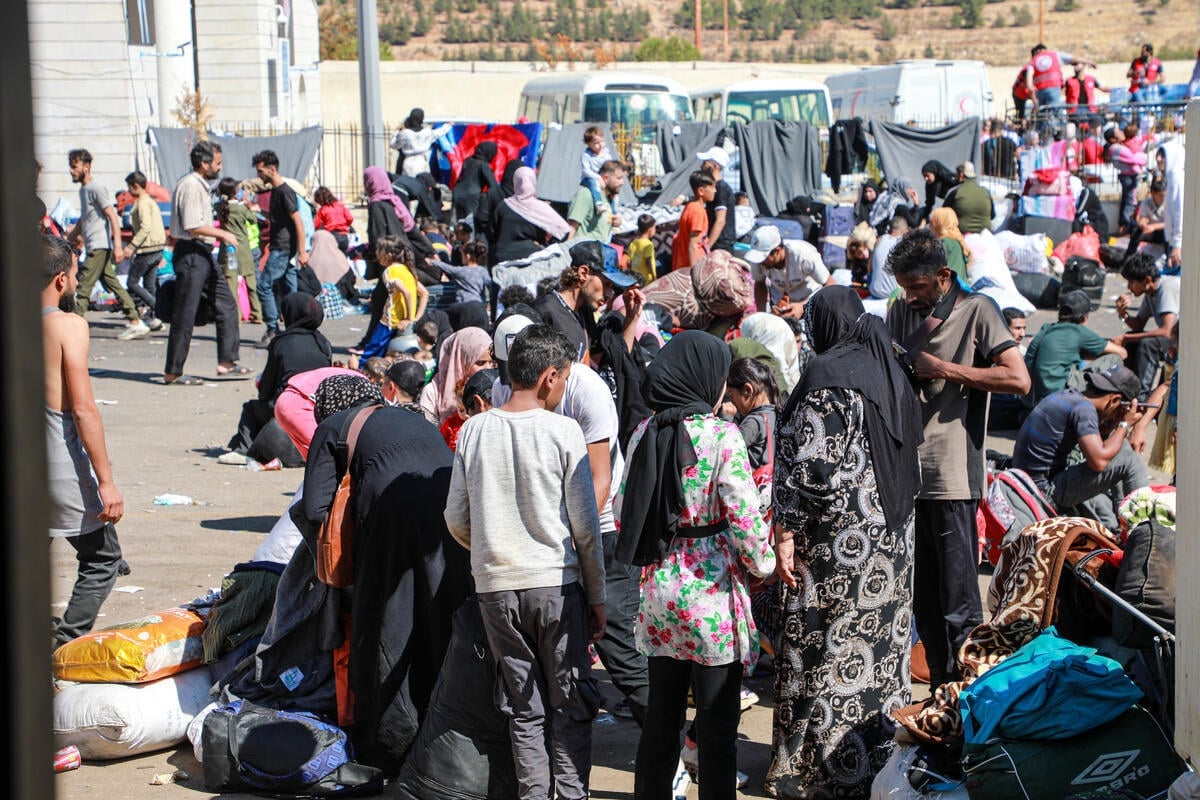Lebanon's ancient city of Baalbek rises from the rubble
Lebanon's ancient city of Baalbek rises from the rubble

BAALBEK, Lebanon, November 13 (UNHCR) - Under the Romans, Baalbek was known as Heliopolis, or the City of the Sun. In more recent times, the ancient settlement in northern Lebanon's fertile Bekaa Valley has been associated more with storm clouds; last summer, Israeli airstrikes caused considerable material damage, disrupted agricultural produce and kept the tourists away.
Today, the city of 120,000 people is licking the wounds left by the five-week conflict, which began in mid-July when Israel unleashed a massive military response after Hezbollah militias abducted two Israeli soldiers. But its resilient people are busy rebuilding their lives, and in many cases their homes.
"The war is not yet behind us. Fighting ended but the problems have just started. Heating, school fees, books and repairs are my daily nightmares", said 55-year-old Mohamad Al-Ahmar, who fled to the nearby town of Britel with his wife and five children during the conflict.
The businessman returned to a scene of destruction. "This is what used to be my laundry shop," he recently told UNHCR, pointing to a pile of rubble and sand in the city's Al-Chmas district. "I applied for a small loan through the [state-run] Social Development Centre and rented a new shop to restart my business, but the number of my clients has declined. Most of them still don't know that I am back in operation."
But while Al-Ahmar faces a hard time, his energy and determination is typical in Baalbek, where 385 houses were destroyed and a further 850 partially damaged during the conflict. Most Baalbek citizens have returned to the city, reconstruction work is apparent everywhere and small businesses are back up and running.
Israeli airstrikes hit residential and commercial buildings as well as industrial plants, but its famous temples were not targeted. One school was totally destroyed and another partly damaged, while at least 113 people were killed. The city-centre souk and traditional houses, all dating back to the Ottoman period, were badly damaged
Some local organisations have been helping in the clean-up and reconstruction, but most work is carried out by the inhabitants, who hope to get compensation. UNHCR, meanwhile, has been visiting the area to monitor conditions and needs for those who remain displaced - about 5,000 people from some 800 families.
"People here talk about being neglected. The war is over, but UNHCR's role continues. These people are of concern and the agency is considering ways and means to help the community," said Lisbeth Brask Jensen, a field community services officer for the refugee agency.
With winter approaching, many of those whose houses were destroyed will have to wait until next year to finish working on their homes. Some of the displaced live with relatives, others have rented apartments or moved to nearby villages.
Maria Mortada, a Romanian married to a Lebanese pharmacist, is among those who have had to rent a place. She sought refuge in Romania during the war and saw TV news footage of her apartment in Baalbek go up in flames.
"It took us more than three years to build this house, and suddenly everything vanished in seconds. We lost everything. The war has not only taken souls, but also beautiful memories and my private life," she said bitterly, before composing herself and looking to the future.
"The winter is here and snow is on the threshold, which will hamper reconstruction works for a while. We must work fast to have our house back by the summer," Mortada added. By then the tourists might be back and Baalbek should be well on its way to recovery.
By Laure Chedrawi in Baalbek, Lebanon



